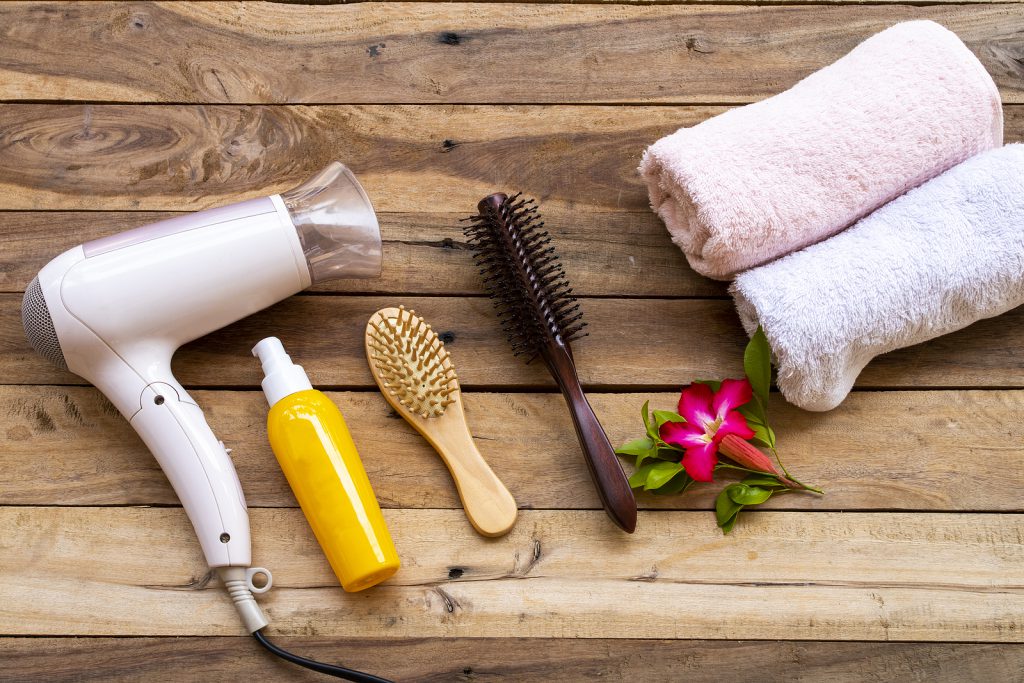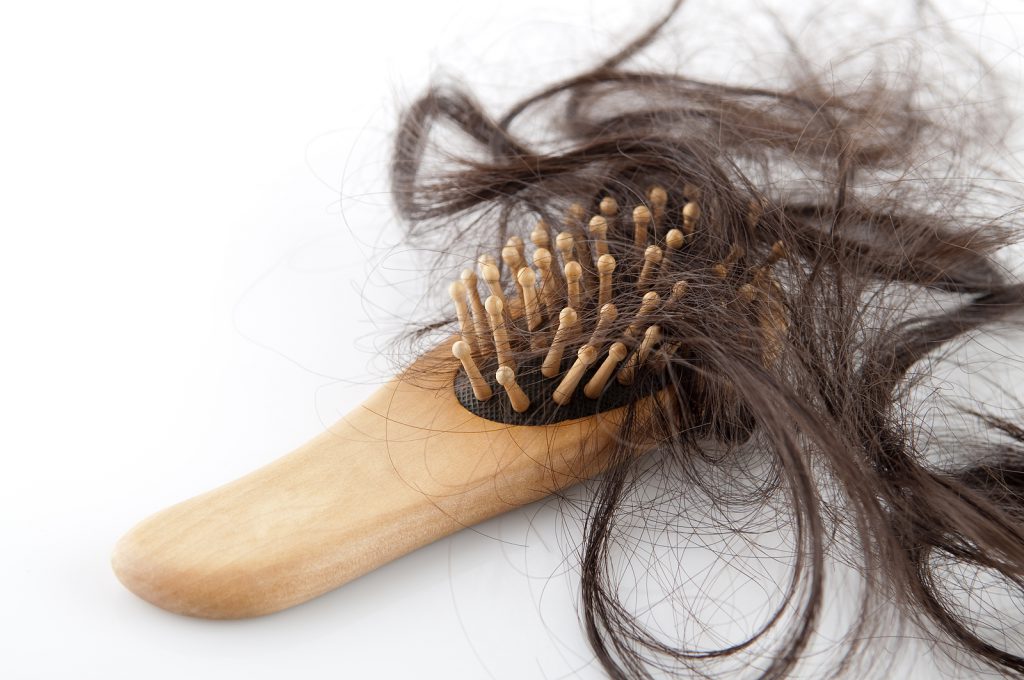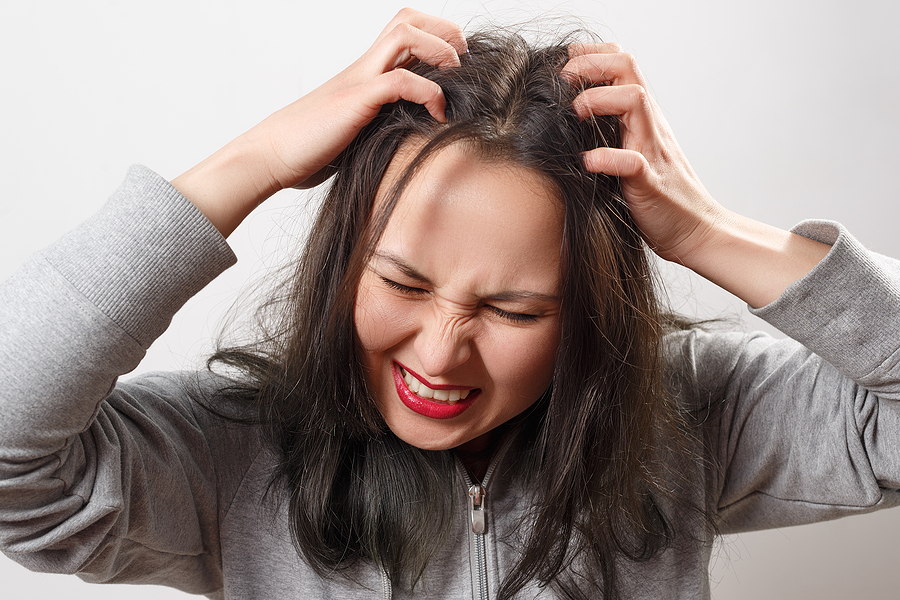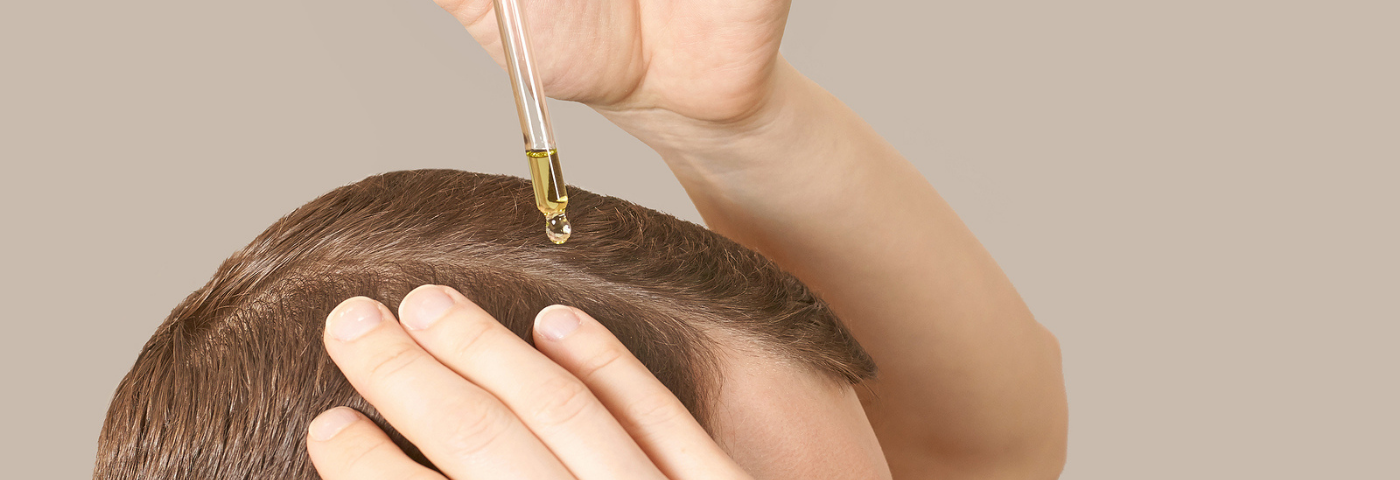For years, hair products have primarily focused on helping consumers achieve luscious, shiny locks, with scalp related haircare a secondary thought often only considered when issues such as dandruff arise. That was until the ‘skinification of hair’ entered beauty lingo. Of course, your scalp is skin, so this isn’t something new. But cited as one of 2021’s biggest trends by Forbes, this concept refers to a new emphasis on giving the skin on our heads the same care, attention and regimes as the skin on our faces.

As interest in this trend surges, haircare brands are advancing their formulas for scalp health and launching new serums, masks and other haircare products that draw inspiration from ingredients typically associated with skincare such as vitamin C, hyaluronic acid and probiotics.
“Growing awareness and understanding of the anatomy of the hair including the scalp and follicle has driven a rise of tailored products using high-quality ingredients that consumers know and trust,” says Nancy Twine, founder of Briogeo in an interview with Glossy. Melisse Shaban, CEO and founder of Virtue adds: “Women have long understood the benefit of high-quality ingredients in their skincare regimes and have been willing to spend more for that quality. Now they’re starting to understand that what you put on your hair and scalp really matters too”.
As an extension of the face and a foundation for hair follicles, this seems like a natural extension of the skincare trend. According to William Gaunitz WTS, certified trichologist and founder of the Gaunitz Trichology Method: “Skinification is long overdue.”
This growing consumer movement is driving development into new innovative ingredients and more advanced formulas, as well as playing a part in marketing trends – something we are already witnessing in the industry. “The ‘skinification’ of haircare has really changed how people think about shampoo and conditioner. We named one of our products Moisturising Cream because the language of skincare is starting to filter through to haircare” says George Northwood, celebrity stylist who launched a range of home haircare products, Undone, earlier this year.
Tackling hair loss

Increasing the health of the scalp also means increasing the health of the hair. The coronavirus pandemic has placed untold stress on consumers of all ages, leading to an increase in hair loss. According to Sara Hogan, MD, a health sciences clinical instructor at the David Geffen School of Medicine at UCLA: “There are three common cycles in hair’s life cycle. Up to 90% at any time are growing, 5% are in a resting phase, and up to 10% are shedding. When you have a major stress event or shock, up to 50% of your hair can sprint ahead to the shedding phase”.
As such, products aimed at controlling hair loss and promoting hair growth and health have seen a huge uptick in online searches and sales throughout lockdown. Sephora reported that year-on-year searches for ‘hair loss’ on its website rose by 409% during the first lockdown from March to May 2020. At the same time, searches for biotin – a supplement commonly used as a hair-loss treatment – rose by 291% in the same period on Ulta Beauty.
Sales are increasingly converting from this surge in searches too; during the same period, hair growth supplement brand Nutrafol recorded a 61% increase in new customer sales of its women’s supplement and a 30% increase for its stress adaptogen supplement. Similarly, vitamin and supplement brand, Hum Nutrition witnessed a 160% growth in new customers for its hair supplements in Q2 compared to Q1 2020.
“As a trichologist, I’ve often told my clients who are concerned about hair loss that I don’t care about your hair, I care about your scalp. The skin on your scalp could be considered even more important than the skin on your face, because of the 100,000+ follicles growing from the area that produces hair. Treating the scalp with skincare-based ingredients will support a healthy scalp microbiome” says William Gaunitz.
R&D professionals looking for the latest ingredients to tackle hair loss can find out more about Hairdian AP by Greaf on in-cosmetics Discover. The natural plant material focuses on the regulation of the hair follicle cycle and could effectively reduce hair loss by promoting autophagy of dermal papilla cells and regulating the expression of some cell growth factors.
The dandruff dilemma
Whilst thinning hair might be one of the most concerning signs of poor scalp health, dandruff is one of the most common, affecting one in two adults. It is a multifaceted problem that can occur due to a number of reasons including levels of sebum production and the microbial composition of the scalp, particularly a fungus called Malassezia.
This may be recognised as a main culprit of dandruff, but new research findings from R&D scientists at Unilever also found that bacteria have a part to play in the condition. “Our research has revealed that both fungi and bacteria have a part in the development and progression [of dandruff]. Neither bacteria nor fungi are solely responsible. We believe both are involved” says Sally Grimshaw, Research Scientist at Unilever. “Using a technique called qPCR, we were able to accurately count the bacteria. It detects the presence of a specific gene (DNA) in the bacteria. The more copies of the gene, the more abundant the bacterial species. We discovered that one species, in particular, Staphylococcus capitis, was 100 times more abundant on dandruff affected scalps.”
A number of the ingredients showcased on the in-cosmetics Discover platform specifically target this well-known problem. Seascalp™ biomarine from Lubrizol Life Science is a biotechnological ingredient that minimises the accumulation of sebaceous lipids and strengthens the skin barrier function. The ingredient helps in naturally providing a healthy scalp with less itchiness, fewer flakes and reduced greasiness, which aids in managing dandruff-prone scalp. In addition, CLR Berlin’s CutiBiome CLR™ was developed to act as an effective aid in reducing the burden of dandruff by recalibrating the skin as an ecosystem. The synergistic complex of lipophilic extracts from Manuka, Black Pepper and Magnolia provides essential support for the natural balance between skin and its microbiota and strongly reduces sebum and inflammation involved in dandruff.
Stop the itch

General sensitivity and itching are also common scalp issues that can occur due to an imbalance of the microbiome and a build-up of bacteria in the hair follicle. Just like the pores on your face, follicles on the scalp can become inflamed and require the right products and ingredients to restore the equilibrium.
Complementing its product Hairdian AP, Greaf is showcasing a novel active ingredient specially developed for mildly protecting the scalp and relieving scalp itching on the in-cosmetics Discover platform. Extracted from three natural plants – Vitex trifolia, Gentiana scabra, and Polygonum multiflorum – Scalpatron VGP exhibits potent efficacy of inhibiting the secretion of inflammation mediators, protects the scalp from lipid peroxide’s irritation and solves the origin of the scalp itching issue.
Elsewhere on the platform, formulators and R&D professionals can find out more about Lubrizol Life Science’s ingredient AlgaPūr™ HSHO algae oil which offers immediate and long-lasting moisturisation and improved skin barrier function, keeping the scalp young for holistic hair care.
Healthy scalp = healthy hair
Beautiful hair has to start from the rootand consumers have realised the necessity of looking after the health of their scalp in addition to caring for their hair.The scalp is a complex ecosystem where many aspects such as the microbiome and barrier function must be balanced.
“Over the years, people started spending lots of money on skincare but were still washing their hair with [the equivalent of] dish soap. Millennials have become more transparent with brands about what they want and have dug deeper into the ingredients in their haircare and skincare” said Howard McLaren, Co-Founder of R+Co. With millennials demanding more sophisticated formulas, this new trend for cross-pollination of skincare and haircare ingredients presents an interesting opportunity for the whole beauty and personal care industry. To access in-cosmetics Discover, visit https://discover.in-cosmetics.com/
Did you know we’re having a webinar session on collagen for haircare on 24 June with K-Beauty experts? Learn more about this multifunctional ingredient for haircare & repair here and save your place for The Science of K-Beauty Ingredients webinar day!


